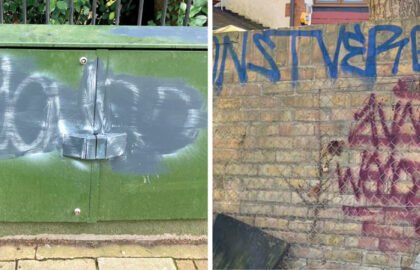Whether you are a tenant or a landlord, being involved in a dispute can be a stressful and difficult time if you do not have the right advice to hand, says Ruhul Ameen, a partner at local solicitors Wiseman Lee
According to recent figures published by The Property Ombudsmen, the most common reasons for tenancy complaints are ‘poor management’, ‘communication and record-keeping issues’ and ‘problems with tenancy agreements, inventories and deposits’.
Similarly, separate research from price comparison website GoCompare suggests neighbour disputes remain a big issue in certain UK regions. Its survey found that London ranked as the UK’s number one ‘hotspot’ for ‘nasty neighbour behaviour’, while South East England was one of the top areas for ‘noise’ complaints.
This year, in a bid to increase protection for tenants, a raft of new laws have come into force. The Tenant Fees Act, which came into effect on 1 June 2019, now outlines specific rules relating to landlord payments. From this date, the amount landlords can legally request as a security deposit is capped to no more than the equivalent of five weeks’ rent.
Further new legislation focuses on tenant health and safety. The Fitness for Human Habitation Act came into force in March 2019, updating the former Landlord and Tenant Act 1985. All landlords, both social and private, must now ensure their properties are fit for human habitation at the beginning of the tenancy and throughout.
Recent inspections of around 60,000 properties found that more than 4,500 had at least one Housing Health and Safety Rating Assessment (HHSRS) issue. The main areas for concern were broken smoke detectors, which made up 40% of all issues, while more than a quarter of the problems reported were stair trip hazards.
If the courts find that a property is not fit for human habitation, they may order compulsory improvement of the condition of the property, as well as possible compensation for the tenant. The criteria used to decide if a property is ‘fit for human habitation’ include: insufficient ventilation, not enough natural light, a serious damp problem, issues with the supply of water, drainage problems, lavatory issues, insufficient facilities to cook food, an unstable building or a property that has been generally neglected and in a poor condition. The penalties for landlords who breach the new rules are severe, with tenants now having more power to take action.
The advice for any tenant or landlord involved in a dispute is to seek expert legal advice to ensure a small disagreement doesn’t turn into a lengthy and bitter legal battle. Depending on the nature of the dispute, it might not always be necessary – or sensible – to pursue court action. Options such as alternative dispute resolution can often help bring a disagreement to an end in a speedier and often less costly manner.




